📖 Anfield Annals: Matt McQueen the Anfield All-Rounder who did everything in 36 years as a Red
Playing in every possible position, becoming a referee, joining the board of directors, scouted for and managed Liverpool - with his former home now part of the stadium today: McQueen did it all
When any player joins Liverpool, they often vow to give their all to the club but few can claim that they have ever done more than Matt McQueen. Although far from a household name for today’s supporters, the dedication that the Scot had to the Reds means that his efforts deserve to be remembered and respected by a modern audience.
Versatility is a key component of any team but for a player to not only be able to fulfill a role in every position on the pitch but actually be deployed in each, shows a remarkable amount of footballing talent. Being able to play as both an outfield option and goalkeeper too, is a rarity beyond modern-day comprehension but Matt McQueen possessed these skills like no other before and since his days at Anfield.

Signing for the club in our very first season, two McQueen brothers arrived at the same time. Both were signed from Leith Athletic, with Matthew and Hugh joining the healthy band of fellow Scots that were already part of the playing staff. Matt was a Scotland international who played predominantly as a winger. Despite this clear preference though, his versatility was quickly spotted and meant that he moved around the pitch and began representing the club in various different positions.
In all, Matt spent seven seasons in a Liverpool side who played in blue and white and made 103 appearances in all competitions. However, more than the three league championship medals he collected in the Lancashire League and Second Division, what makes the Scot’s Anfield career so special is how adept he was in and out of goal. 41 of his games for the club were in-between the sticks, as he forced his way past William McOwen as the No.1.
His record of winning two Second Division championships, one during his outfield days and one as a goalkeeper, remains untouched as no other player has ever matched this feat. Matt was such a rarity in English football history but his role in the side was soon under threat when Harry Storer was signed from Woolwich Arsenal in 1895. From the end of the 1895/96 season, Matt’s adaptability was not enough to keep him in the side and he only played six more games throughout the next three campaigns.
Despite this record-setting time at Anfield, it meant that news of his retirement from the game in 1899 whilst in his late thirties wasn’t a huge surprise. Having been deemed good enough to play in every single position, it was clear that McQueen’s talents were worth keeping in some capacity. Although the standard of football was very different in the late 1800’s to what we see today, this talent to play in every role was far from normal even then and should not be underplayed.
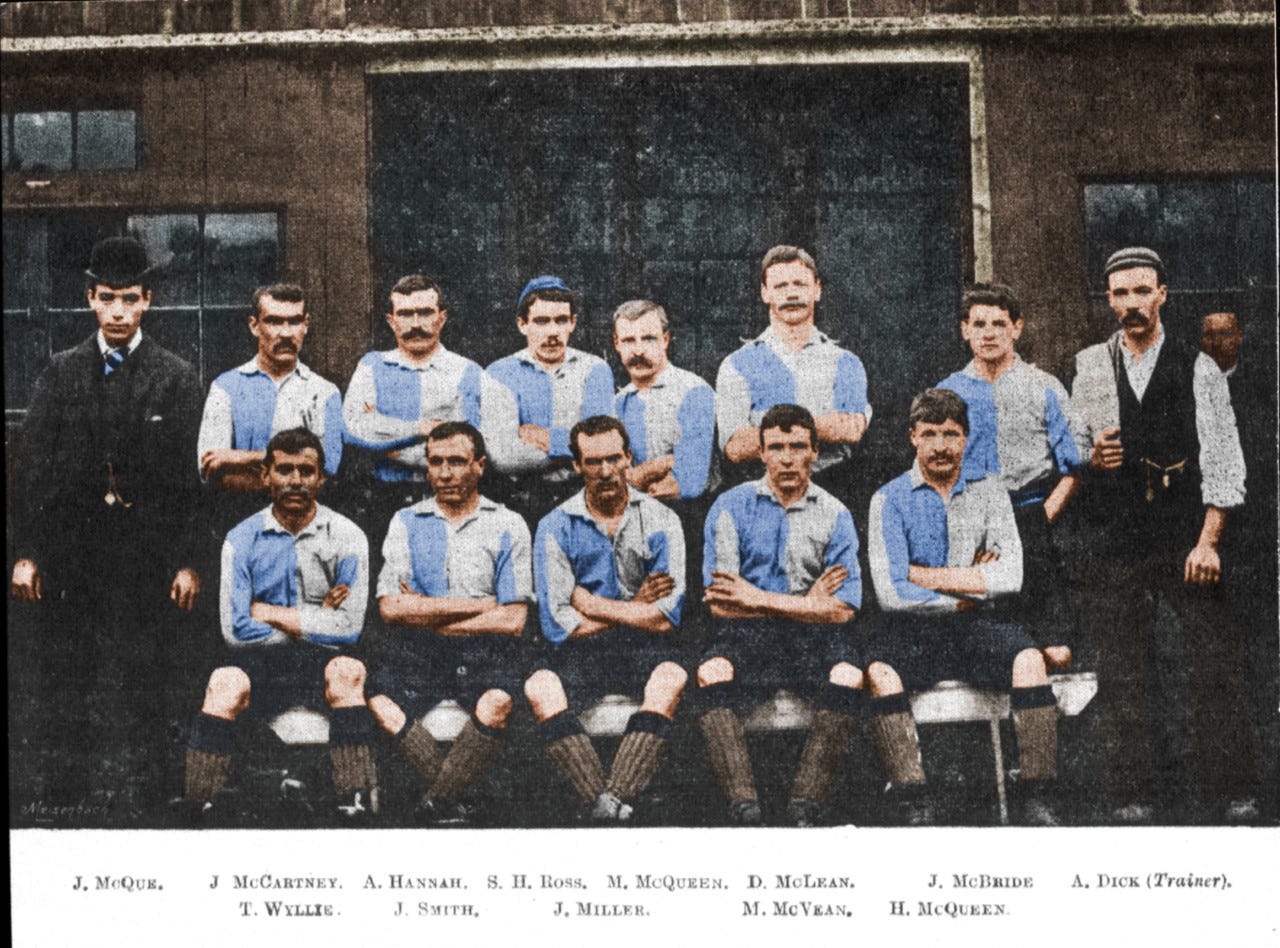
After playing in every position on the pitch, Matt then turned his attention to becoming a qualified referee and linesman and by 1904 he’d now literally done every possible role on a football pitch. The need for extra income combined with a thirst to stay in the game meant that he found himself becoming an official and spent 15 years with a whistle or flag in hand but his love for Liverpool meant that he never left the city.
So, when an opportunity to become a director at Anfield came up - Matt immediately put his name forward. He was voted into the role with overwhelming support and the love affair with Liverpool could be rekindled in 1919 - 20 years after his departure as a player. It was expected that this would be a long period of helping the club in the boardroom, with the club’s hierarchy being much more involved in this time. Not just overseeing the financial matters but also helping select the side, McQueen’s love of the game meant that he would be perfect for this role.
Whilst in this new position, he supported the manager David Ashworth as the Reds went on to clinch the 1921/22 First Division title and after the first-half of the following campaign, an unprecedented retention of the trophy looked very possible. Despite this recent success and glimpse at history on the horizon though, Ashworth made the shock decision to leave Anfield.
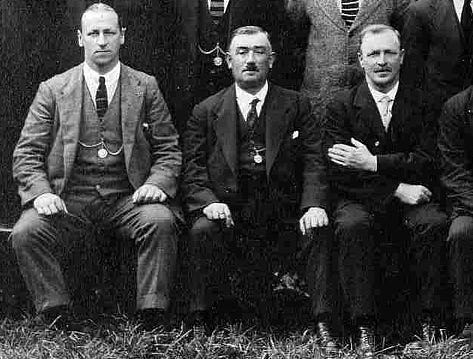
Even more surprising than the decision to leave, was where the next destination would be. Ashworth’s head was turned by bottom of the table Oldham Athletic. Oldham had given him his first job in football as their manager, with his old side struggling - he wanted to help them remain in the top division. The Greater Manchester club were ultimately relegated, but Liverpool were left manager-less and top of the league. It was an understandably highly sought after role that attracted many applications.
McQueen was the overwhelming favourite for the job by supporters and the board of directors, so it was no surprise to see that it was him who was appointed manager. He was among many ex-players to apply for the job, and ‘Athletic News’ reported:
‘After careful examination of an extraordinary number of applications for the post of team-manager to the Liverpool Association Club, now threatening to establish a post-war record as League Champions, the directors of the club have appointed Matt McQueen to that position. There is no better-known man in the club, for he has been connected with Liverpool for over 30 years.’
This appointment meant that McQueen had now played in every single position for Liverpool as well as being a board member and now manager, a momentous achievement that illustrated his love for the club. Matt, now 60 years old, was the first ex-player to manage the club - paving the way for Phil Taylor, Bob Paisley, Kenny Dalglish, Graeme Souness and Roy Evans.
The Scot oversaw the last 14 games of the season and, despite only winning one of the last seven matches, he got the Reds over the line and guided Liverpool to consecutive First Division titles, for the first time. This was to be the only trophy that McQueen won as manager but it was important that Liverpool held on to win the league that season, especially given the upheaval caused by Ashworth’s shock departure.
Four rather uninspiring campaigns followed but McQueen kept his place as manager. He was a popular figure at Anfield and it was hoped that the Reds could restore some form that was present during the back-to-back title wins. However, Matt was soon involved in some terrible scenes in November 1924.
‘Mr McQueen went to Barnsley on a scouting expedition, and when returning from the match with a colleague … he was knocked down by a taxi and was found to have a broken leg’. Matt was told to go to hospital with his broken leg, instead he got into a two-seater car to meet the Liverpool chairman regarding his scouting mission. The Scot would have been in agony during the meeting, but he put the needs of his club in front of his health, this is admirable when what transpired is further analysed. Unfortunately, McQueen had ‘his leg amputated as a consequence of septic poisoning arising through a broken leg sustained at Barnsley in November’.
Had Matt gone straight to hospital after he broke his leg then it may have been saved but he chose to meet the chairman, rather than deal with a broken leg. If this is stupidity or loyalty, it’s hard to decide. The phrases ‘wearing his heart on his sleeve’ and ‘would give his right arm’ are thrown around very easily, in McQueen Liverpool had a man who literally gave a leg for the club.
His health was seriously affected following his amputation. Despite this, he remained in charge of Liverpool and oversaw a dramatic relegation escape where the Reds were one of seven sides that managed to avoid relegation on the final day. Matt ultimately left in 1928, due to his ill health. In his final season he made a phenomenally important transfer for the club, bringing in Gordon Hodgson.
The South-African was spotted when he was on tour with his native side Transvaal. Hodgson went on to score 241 goals in 377 games for Liverpool and remains third in the all-time goal scoring charts. Matt should be afforded a great deal of credit for the signing of a player that went on to be so successful for the club. The Scot stayed in Liverpool after his managerial career and lived on Kemlyn Road. The site of his old house now lies under the Sir Kenny Dalglish Stand and he visited Anfield regularly throughout his retirement.
Matt’s retirement at the age of 65 ended a 36-year relationship with Liverpool, with his final role being as a loyal supporter. His versatility was certainly noteworthy during his playing days, but to also make the transition from official, to board member, to manager shows how broad his football knowledge and ability was. McQueen clearly took Liverpool to his heart, he had never left Scotland before coming to Anfield and he ended up staying here until his death in 1944, aged 81.
After his death, it was reported in the club’s official matchday programme:
‘Mr. Matt. McQueen was laid to rest at Anfield Cemetery on Tuesday. The Rev. James Jackson, our former Captain, performed the last rites with rare taste and solemnity - he paid tribute to the sturdy man of Anfield, and he called for our remembrance of the widow and children left behind. A number of old-time players were present at the service and in the officials one noticed the Club's Chairman, Mr. W. H. McConnell, with Directors W. Harvey Webb and S. R. Williams, together with Messrs, Geo. Patterson, Dr. Curwin, Bert Riley, Andy McGuigan, groundsmen and gate-checkers, etc. It was a simple ceremony, sincere in every note, and typifying the life of Matt. McQueen, who was a relentless, stern, straight and forth- right man.
‘Matt. McQueen came to Liverpool from his bonny Scottish Leven and grew up with the Liverpool Football Club, for whom he played in every position. In the old days it was argued that a good player could play in any position. That was a fallacy, but Matt. McQueen was the man to whom the phrase applied, because he ran the whole gamut of football; think of his links with the Anfield Club - there was not a point at which he had not had effort and success. He was a player in every position, including goal, when the Liverpool team was termed "the team of Macs"; he was a competent Referee; he was a valued Director of the Club, and at one time became its Manager. The name of Matt. McQueen and Liverpool Football Club will be associated for all time. By his works we knew him.’
Matt McQueen is a man who may have been forgotten over the years but offered more to Liverpool than many other legends of the club ever have or will. His host of records like being the first player to win a league as an outfield player and a ‘keeper and first ex-player to become a manger of Liverpool, illustrate how important he is. He chose meeting his chairman with a scouting report over seeing to a broken leg, leading to an amputation which was certainly ill advised but an insight into how seriously he took his job. Matt gave everything for Liverpool and deserves to be remembered.
A truly unique story from the annals of Anfield history.
If you’re of fan of this kind of content, all completely ad-free, then feel free to hit the subscribe button below and become an EOTK Insider. Dig into exclusive tidbits reserved only for our subscribers!




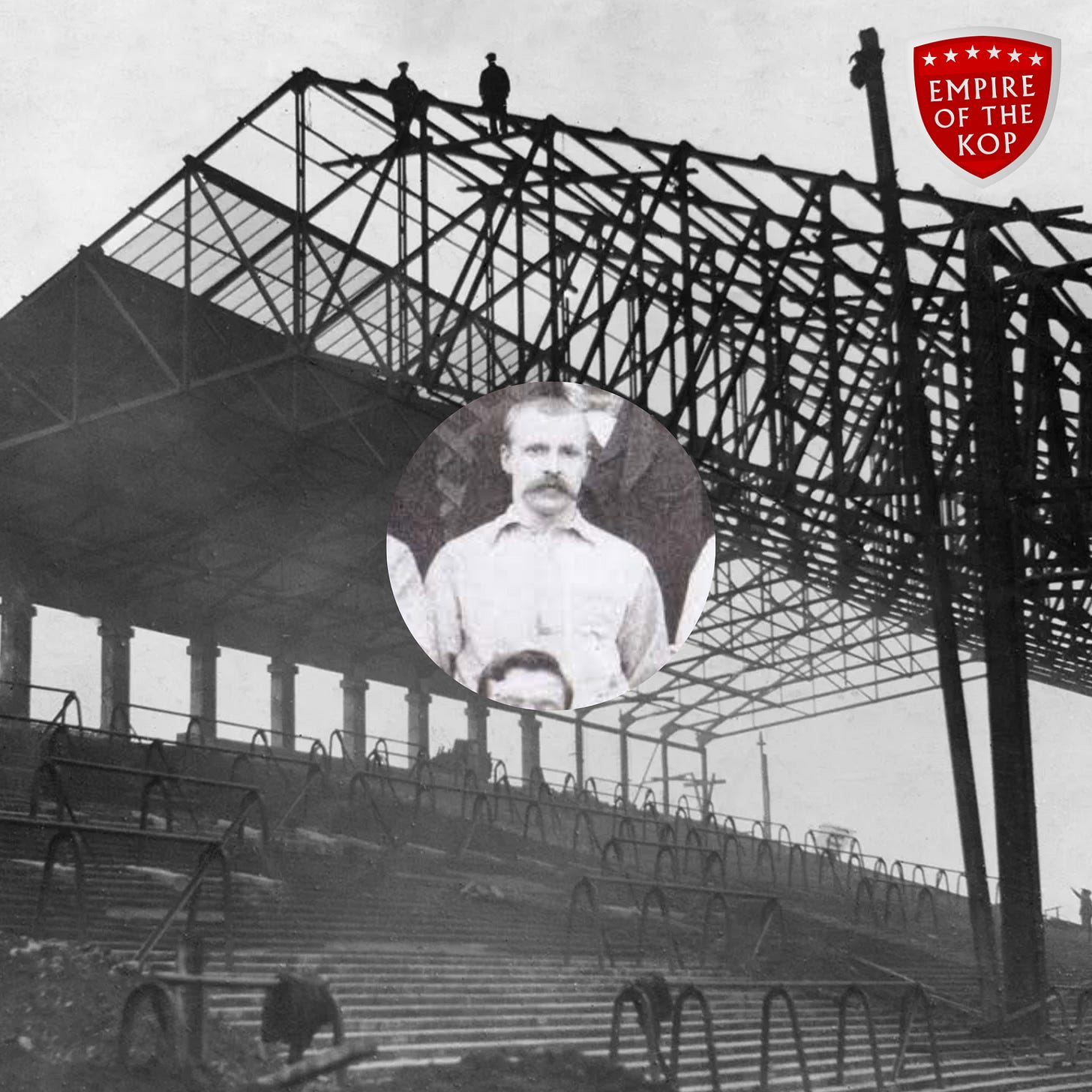
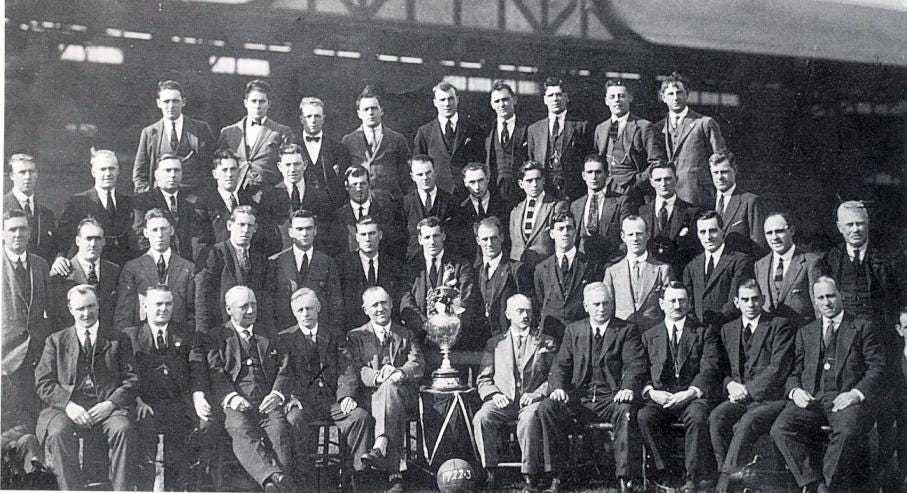
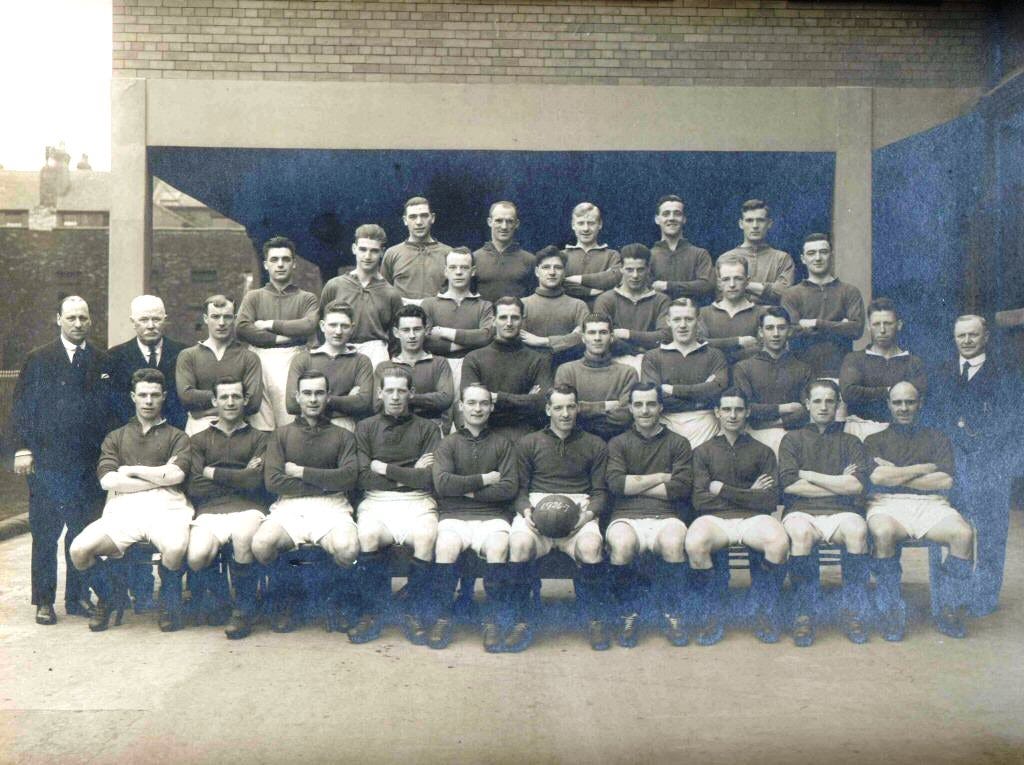

I'm not aware of anyone else going as deep into Liverpool's history as Pete! Absolutely stellar article once again!